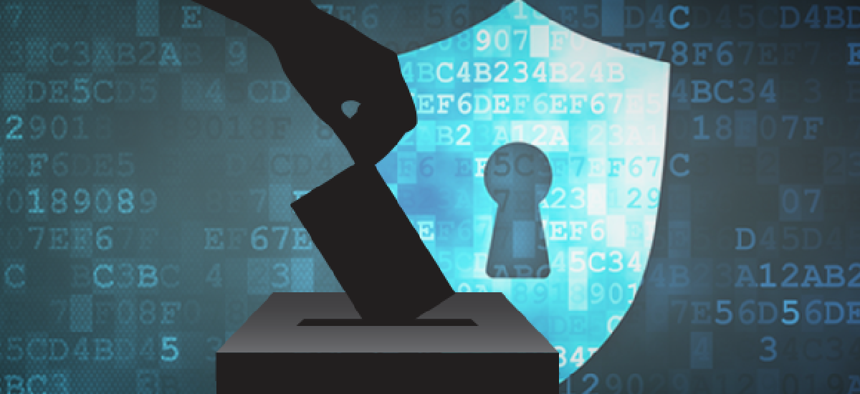Can the intelligence community really share election security threat info?


Connecting state and local government leaders
Federal officials will work harder to share information about election security threats with state officials, but they must also protect sources, which will leave local officials unsatisfied, according to the IC's election security threats executive.
Federal officials will work harder to share information about threats to election infrastructure with state officials, but they may have trouble striking a balance between spreading awareness and protecting sources, according to the intelligence community's election security threats executive.
Attacks on voting infrastructure, political campaign hacks and malign influence operations will be more sophisticated in 2020, but those threats do not end after voters have cast their ballots, the Office of the Director of National Intelligence's Shelby Pierson said. Election attacks are part broader threats from adversarial nations.
"There are many, many other activities and vectors that our adversaries use to pursue us when it's not election day," Pierson said while speaking at a Jan. 14 event hosted by the Election Assistance Commission.
While the government has conducted counterintelligence work for decades, 2016 was "a moment in time in which the intelligence community had very valuable information about the threats that we were facing and the activity that was being undertaken," she said.
Some of that information did come out before election day in 2016, but many state officials complained that the federal government was too slow to notify them of the impending threat from Russian hackers and too secretive when it finally did.
When it comes to the 2020 elections, Russia, China, Iran and other actors have the capabilities and motivation to meddle, and Pierson said she was "committed" to downgrading classification and sharing more information where possible with stakeholders this time around. However, that balancing act between speedy dissemination and protecting sources and methods will remain, and the process will "inevitably leave certain parties unsatisfied."
"I face the criticism that sometimes there's some latency built into that process, that there's potentially a lack of context and specificity to that information, and those are all criticisms and challenges that I take fully on board," Pierson said.
Pierson said she's responsible for "bringing the full force of the IC" to election security. That includes developing new means to access the systems and infrastructure of foreign adversaries and conducting analysis to inform policymaking. She said she is also "personally shepherding" improvements in the security clearance process and enabling cyber operations against actors and groups seeking to meddle in U.S. elections.
One area where intelligence agencies could play a unique role is leveraging their awareness of ongoing influence campaigns and notifying targeted groups, individuals, political candidates and parties, or states and counties. Victims of such campaigns are not automatically notified by the government the way they are for hacks and other cybersecurity incidents. It's "another policy opportunity where we can share information and have already done so," Pierson said.
This article was first posted to FCW, a sibling site to GCN.




